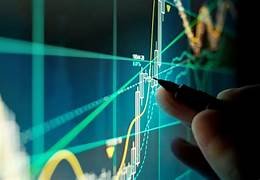Introduction to Trading: Recognizing the Fundamentals of Commodities, Forex, and Stocks

Trading can be a thrilling endeavor that gives one the chance to engage in financial markets and maybe make money by purchasing and selling assets. Beginners, though, may find the world of trading to be intimidating and difficult. Anybody wishing to try their hand in trading has to know the fundamentals of the various trading markets, including stocks, forex (foreign currency), and commodities.
We shall introduce these marketplaces in this blog, going over their salient features, trading systems, and elements that affect price changes.
Stocks:
Traded on stock markets like the Nasdaq or the New York Stock Exchange (NYSE), stocks are ownership in a corporation. Upon purchasing stock in a firm, you become a part owner of that business and stand to gain from dividends or capital gains. Company earnings, the state of the economy, industry trends, and investor mood are just a few of the elements that affect stock prices. Through brokerage accounts, investors can make both short- and long-term stock purchases and sales.
Forex (foreign exchange):
The biggest financial market in the world, forex is where currencies are exchanged against one another. Forex trading is the exchange of one currency for another at a predetermined price, not the ownership of tangible assets as in stocks.
Five days a week, around-the-clock operation of the forex market enables dealers to engage in international currency trading. Interest rates, economic statistics, geopolitical events, and central bank policies are just a few of the variables that affect currency prices. Through online forex brokers, traders can go long (buying) or short (selling) currency pairs and profit from both rising and decreasing currency values.
Commodities:
Exchanged on commodity exchanges are raw materials or main agricultural goods. Among common commodities are wheat, corn, coffee, crude oil, natural gas, and gold. Trading commodities is not like trading stocks or currencies; it deals with tangible commodities.
Geopolitical events, supply and demand dynamics, weather, and worldwide economic trends all affect commodity prices. By means of futures contracts, options, or exchange-traded funds (ETFs), traders can engage in commodities trading and thereby bet on price swings or protect themselves from the dangers related to changes in commodity prices.
CONCLUSION
In summary, trading commodities, equities, and FX provide a variety of chances for traders and investors to make money from the financial markets. Despite the particular features and dynamics of every market, knowing the fundamentals of trading can enable people to make wise judgments and efficiently manage risks.
Trading successfully requires ongoing education, research, and practice whether your interests are in investing in well-established businesses, trading currencies on the international forex market, or speculating on changes in commodities prices. You may confidently negotiate the world of trading and maybe reach your financial goals by developing a strong grasp of the fundamentals and using effective trading techniques.
What's Your Reaction?


















